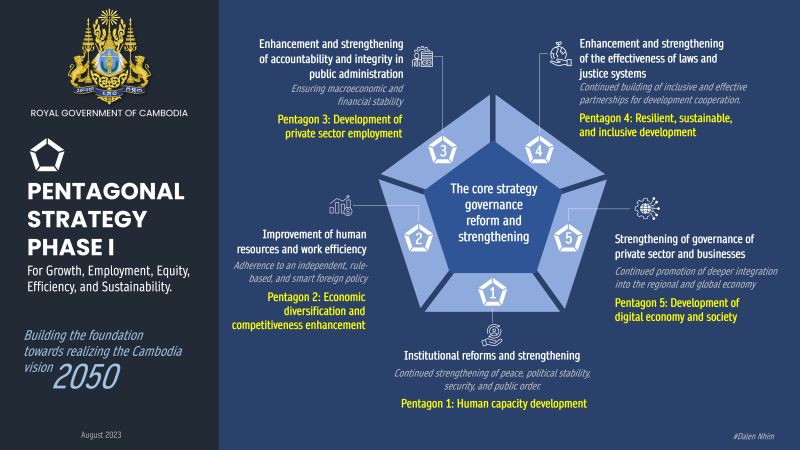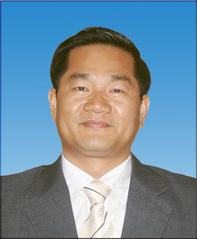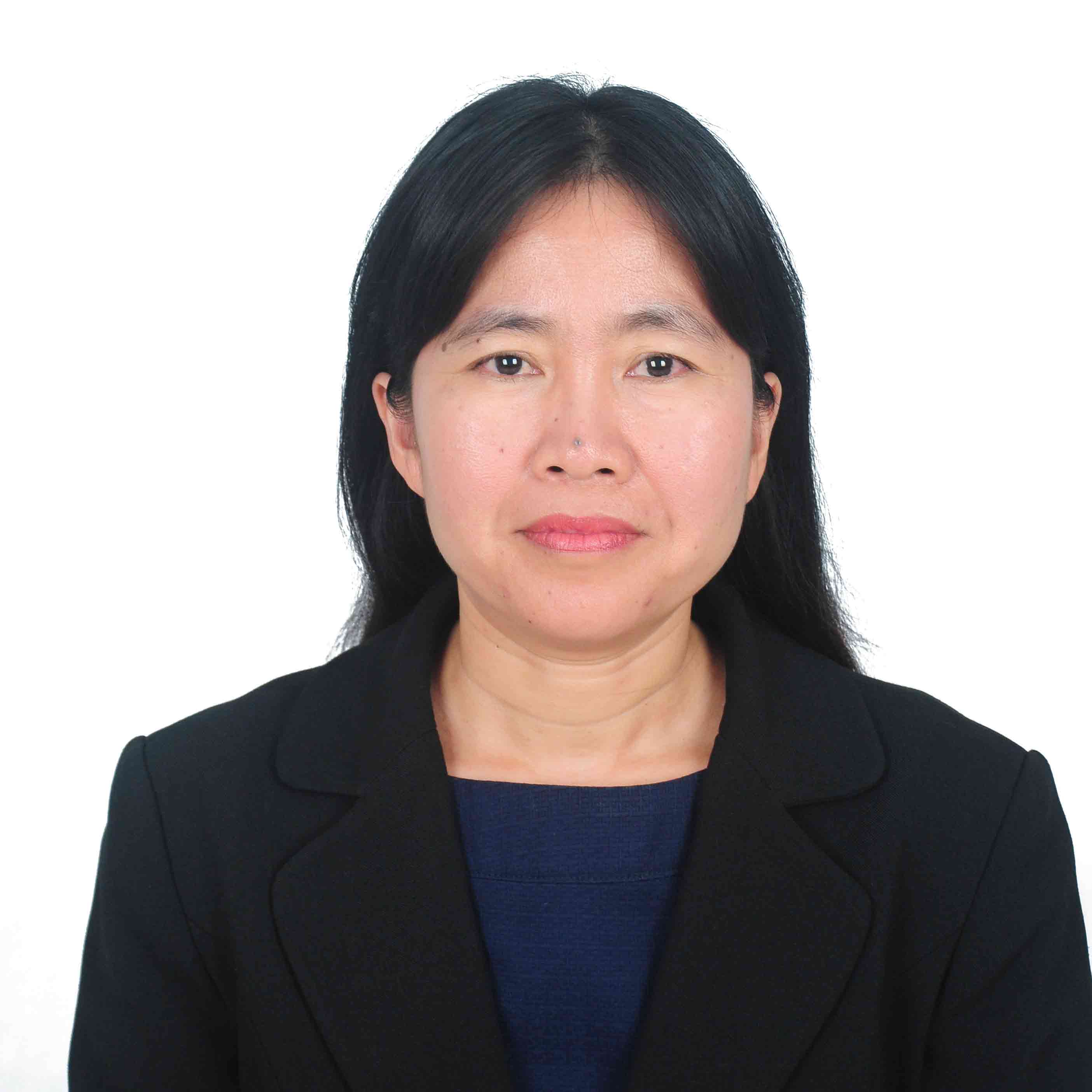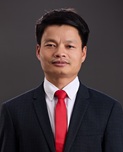
Welcome to the RUA Graduate School (GS), where we are dedicated to shaping the future of graduate education in agriculture and related sciences. Our vision is to be a pioneering institution that prepares leaders equipped to tackle the challenges of tomorrow.
At GS, our mission is to administer graduate programs that advance diverse and inclusive excellence. We believe that education is an active process that transforms individuals, empowering them to contribute to Cambodia's sustainable development. Our community of scholars is committed to fostering interdisciplinary competencies and promoting Cambodian culture and values.
Our educational philosophy centers on the idea that every learner is an independent thinker, capable of lifelong learning. We integrate theoretical, experimental, and technological approaches into our teaching and learning, ensuring our graduates are fully equipped to meet the demands of a rapidly changing world.
Graduates from our programs emerge as global leaders and lifelong learners, ready to innovate and engage with their communities. They are visionary researchers, policy makers, and domain experts equipped with critical thinking skills to design novel solutions for real-world challenges. With a strong emphasis on ethical values and professionalism, our graduates become competent global citizens and ambassadors of Cambodian culture and values.
By 2050, we aspire to be a national center of excellence, offering a diverse range of accredited graduate programs and producing 750 globally competitive graduates. Our commitment to research excellence will see significant contributions through numerous publications and innovative projects that impact society.
Join us at the RUA Graduate School, where we are not just educating the next generation—we are empowering them to lead with purpose and vision for a sustainable future. Together, we can cultivate knowledge and drive positive change in our communities and beyond.
The RUA Graduate School supports the Sustainable Development Goals (SDGs) 2030 and the Pentagonal Strategy - Phase 1 of the Royal Government of Cambodia of the 7th Legislature of the National Assembly for growth, employment, equity, efficiency, and sustainability in building the foundation towards realizing the Cambodia Vision 2050.


School History
The RUA Graduate School commenced its graduate programs in 2002, initially offering Master’s degrees (e.g. Gestion Intégrée pour l'Agriculture et le Développement Rural [GIDAR] or Integrated Management for Agriculture and Rural Development), followed by PhD programs in 2006, specifically in Agricultural Sciences. These programs are overseen by the RUA Graduate School, which now regulates all graduate offerings across the university. The primary objective of RUA’s graduate studies is to cultivate critical inquiry and independent research skills, empowering students to advance knowledge and develop professional leadership.
Graduate work at RUA is designed to pave the way for specialization while encouraging independent research. Candidates are admitted to degree programs only upon demonstrating a clear capacity for graduate-level work. Currently, the RUA Graduate School administers a variety of graduate programs across our esteemed faculties and school of RUA, including:
In response to the growing demand for advanced education, we have expanded our offerings to include disciplines such as farm management, agroecology, food systems, agribusiness, entrepreneurship, economics, and development management. Our programs include many specializations, but we mainly focus on agriculture and related fields, where our graduate faculty members is strong and resources are plentiful.
Degrees Offered
The RUA Graduate School offers the following degrees:
- Master of Science (MSc) by Coursework
- Master of Science (MSc) by Research
- Professional or Non-thesis Master’s
- Doctor of Philosophy (PhD) by Coursework
- PhD by Research
We are committed to continuous innovation, introducing new degree programs that have a meaningful impact on society. Initiatives such as Professional Master’s programs, Straight PhDs, and Dual PhDs by Research are designed to accommodate a diverse range of learners and researchers. Quality assurance is fundamental to our educational mission.
Educational Philosophy
In alignment with our goals of good governance and future-oriented leadership, we emphasize globalization in graduate education and lifelong learning. Our curriculum fosters essential 21st-century skills—critical thinking, communication, collaboration, and creativity—preparing our graduates to be globally competent individuals ready for the Industry 4.0 job market through innovative global gateway programs.
Our RUA graduate program's Educational Philosophy shall be:
- Graduate education is an active process of transforming and enabling individuals to contribute to the growth and sustainable development of the country.
- RUA is a community of scholars committed to the development of interdisciplinary competences and global citizenship while promoting Cambodian culture and values.
- We believe that every learner is an independent learner, capable of lifelong learning and leading in the creation of new knowledge and skills. In that students learn best by incorporating theoretical, experimental and technological aspects.
- With this, RUA aims to produce qualified and competent human resources in agriculture and related sciences through governing graduate programs to advance diverse and inclusive excellence by making the teaching and learning, research, administration and services more efficient, effective and sustainable.
Leadership History
The RUA Graduate School has been led by distinguished individuals:

H.E. Dr. Touch Visalsok (2002-2008)
(Currently, Secretary of State, Ministry of Interior)
|

Prof. Seng Mom (2008-2011)
(Currently, RUA Vice Rector for Academic Affairs and Student Services) |

Assoc. Prof. Huon Thavrak (2011-2019)
(Currently, RUA Vice Rector for Public Relations and Business) |

Dr. Nguon Samnang (2019-Present)
|
As of November 27, 2024, the RUA Graduate School proudly celebrated its 22nd anniversary as Cambodia's first Graduate School, leading the way in offering innovative graduate programs in agriculture and related sciences.
School Organization
Graduate studies at RUA are supported by over 100 graduate faculty members spanning 10 faculties, 2 schools and other units. The dean, in collaboration with vice deans, implements policies and regulations, guided by the Graduate Academic Affairs Council, which includes deans of different faculties and the 3 standing committee chairs. Currently, graduate students represent approximately 3% of the total student population at RUA.
Notable Achievements
Established on November 27, 2002, the RUA Graduate School administers over 12 graduate degree programs, including unique offerings in PhD Agricultural Sciences and PhD Crop Science—programs exclusive to RUA in Cambodia. Our renowned programs in Integrated Management for Agriculture and Rural Development, Natural Resources Management, and other fields consistently attract high enrollment rates. Many of our graduates now hold influential positions, leading development initiatives and contributing to policy formulation and implementation in their respective areas.














 Office Hours
Office Hours Graduate classes may be scheduled outside of regular office hours.
Graduate classes may be scheduled outside of regular office hours. How to find us?
How to find us?